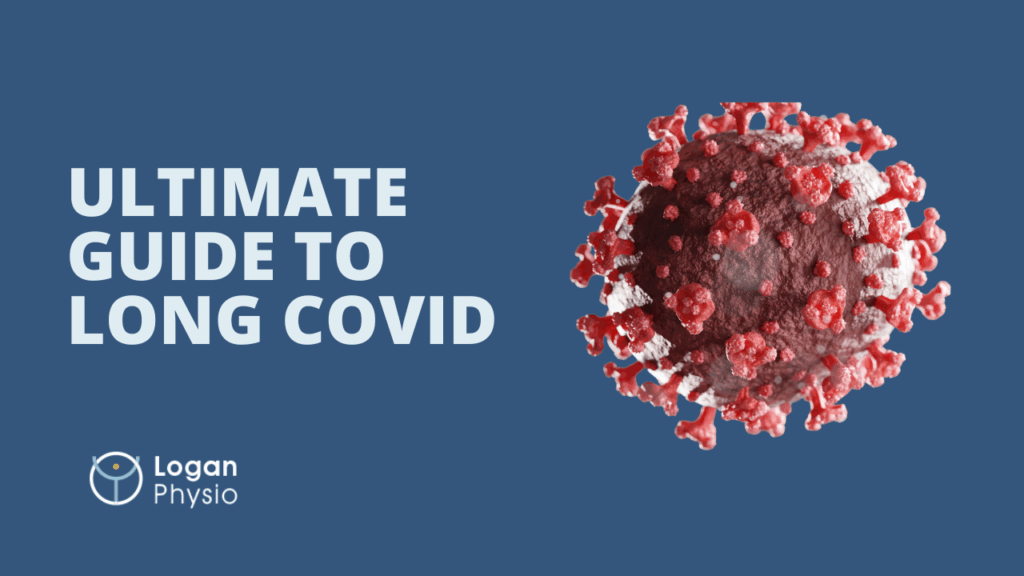If you’ve been feeling unwell long after recovering from COVID-19, you’re not alone. A growing number of people are experiencing a condition known as Long COVID – a prolonged post-viral illness that continues weeks or even months after the initial infection has passed.
In this article, we’ll break down:
- What Long COVID is
- Common symptoms
- The current research
- Why rehabilitation is crucial
- How physiotherapy can help your recovery
Let’s dive into this increasingly important health issue and learn how to manage it safely.
What Is Long COVID?
Long COVID, also known as post-COVID syndrome, refers to persistent symptoms that last 12 weeks or more after the acute phase of COVID-19. These symptoms cannot be explained by an alternative diagnosis and may continue for several months.
According to research, approximately 1 in 10 people who contract COVID-19 will develop Long COVID. In the UK alone, 1.5% of the population self-reported symptoms of Long COVID as of July 2021 (UK Office for National Statistics).
Common Symptoms of Long COVID
Long COVID can affect multiple systems in the body, resulting in a wide range of symptoms that may fluctuate in severity. Common symptoms include:
- Chronic fatigue or low energy
- Shortness of breath and persistent cough
- Brain fog or difficulty concentrating
- Headaches or dizziness
- Heart palpitations or elevated heart rate
- Chest pain or tightness
- Joint and muscle pain
- Pins and needles or numbness
- Disturbed sleep
- Low mood, anxiety, or depression
- Altered sense of smell or taste
Many of these symptoms are similar to those reported in Chronic Fatigue Syndrome (CFS) or Myalgic Encephalomyelitis (ME).
- If you’re experiencing any of these symptoms beyond 12 weeks of a COVID infection, consult your healthcare provider for assessment and support.
The Health and Economic Impact
Long COVID is not only a personal health issue – it’s a public health challenge. Prolonged symptoms lead to:
- Increased healthcare use
- Reduced workforce productivity
- Long-term disability in some cases
Studies published in The Lancet suggest that recovery may take up to 12 months or longer for some patients – with early cases in Wuhan, China, still unresolved years later.
Can Vaccination Reduce the Risk of Long COVID?
Yes. According to research from King’s College London, being fully vaccinated reduces your risk of developing Long COVID by around 50%.
This highlights the importance of COVID-19 vaccination not just for preventing infection, but also for minimising the risk of long-term complications.
For more insight, see Deputy Chief Medical Officer Prof. Michael Kidd’s opinion piece.
Rehabilitation Is Key to Recovery
Effective rehabilitation for Long COVID is essential for symptom management and long-term recovery. However, research from The Lancet revealed that only 0.4% of people with Long COVID have accessed professional rehabilitation support — a troublingly low number.
Why Rehabilitation Matters:
- Reduces risk of worsening symptoms
- Helps manage energy and activity levels
- Supports emotional well-being
- Promotes gradual and safe return to normal activities
How Physiotherapy Can Help with Long COVID Recovery
A physiotherapist plays a vital role in helping you manage and recover from Long COVID. Physiotherapy-led interventions are tailored to your unique symptoms and recovery goals.
Here’s how a physio can support your journey:
1. Activity Pacing and Energy Management
Many people with Long COVID experience Post-Exertional Symptom Exacerbation (PESE) — a worsening of symptoms following physical or mental effort.
Your physiotherapist can:
- Teach pacing strategies to conserve energy
- Help you track your symptoms using an activity tracker
- Guide you in slowly resuming daily tasks without overexertion
📥 Download the World Physiotherapy Activity Tracker
2. Heart Rate Monitoring
Unexplained increases in heart rate (tachycardia) are common in Long COVID. Monitoring your heart rate during exercise and rest can help you:
- Stay within safe limits
- Prevent overexertion
- Improve endurance safely
Your physio will teach you how to monitor your heart rate and adjust your activity accordingly.
3. Breathing Exercises
Lingering respiratory symptoms such as breathlessness, coughing, or tight chest are frequent. Physiotherapists can teach breathing control techniques to help:
- Improve lung function
- Reduce anxiety related to breathlessness
- Minimise coughing fits
4. Avoid Graded Exercise Therapy
It’s important to note that Graded Exercise Therapy (GET) is not recommended, especially when PESE is present. Unlike traditional rehab approaches, pushing through fatigue can worsen Long COVID symptoms.
Instead, physios use a symptom-informed approach that respects your body’s limits and supports a sustainable recovery.
Expert Guidelines on Long COVID Rehabilitation
Leading health organisations offer consistent guidance for Long COVID recovery. For example:
- The World Health Organization (WHO) encourages:
- Gradual return to activities
- Avoidance of overexertion
- Listening to your body’s energy cues
- The National Institute for Health and Care Excellence (NICE) published comprehensive clinical guidelines in December 2020 to address Long COVID diagnosis, management, and recovery.
When to Seek Help
If you’re struggling with symptoms that won’t go away or feel unsure about how much activity is safe, getting help early makes a difference.
You don’t have to go it alone. With the right guidance, you can avoid common pitfalls and focus on steady progress.
Need Support with Long COVID?
If you’re dealing with Long COVID and unsure where to begin, a physiotherapist can provide the support, structure, and confidence you need to recover safely.
🗓️ Book online today or call us on 07 3200 8541 begin your personalised Long COVID rehabilitation plan.



